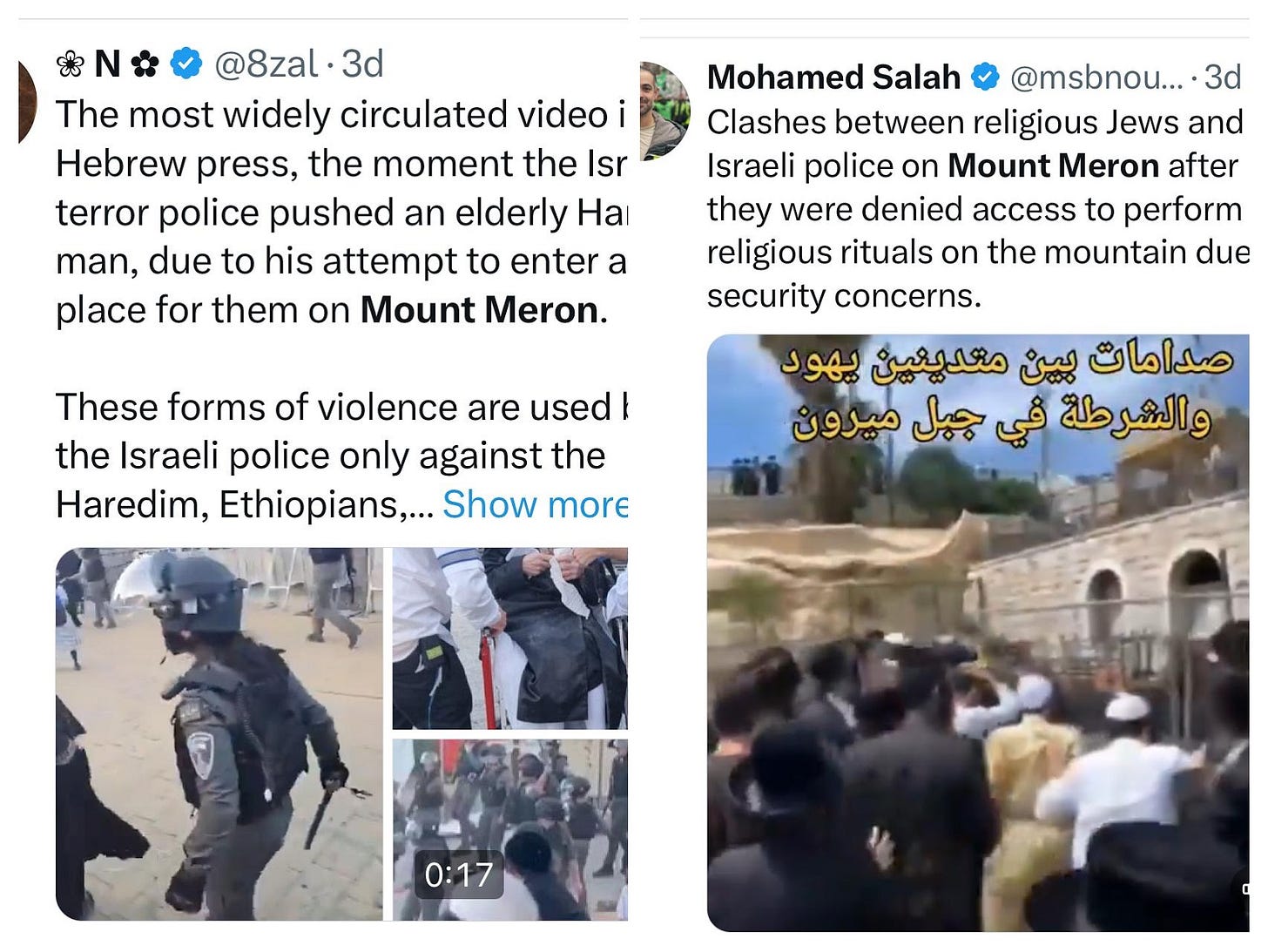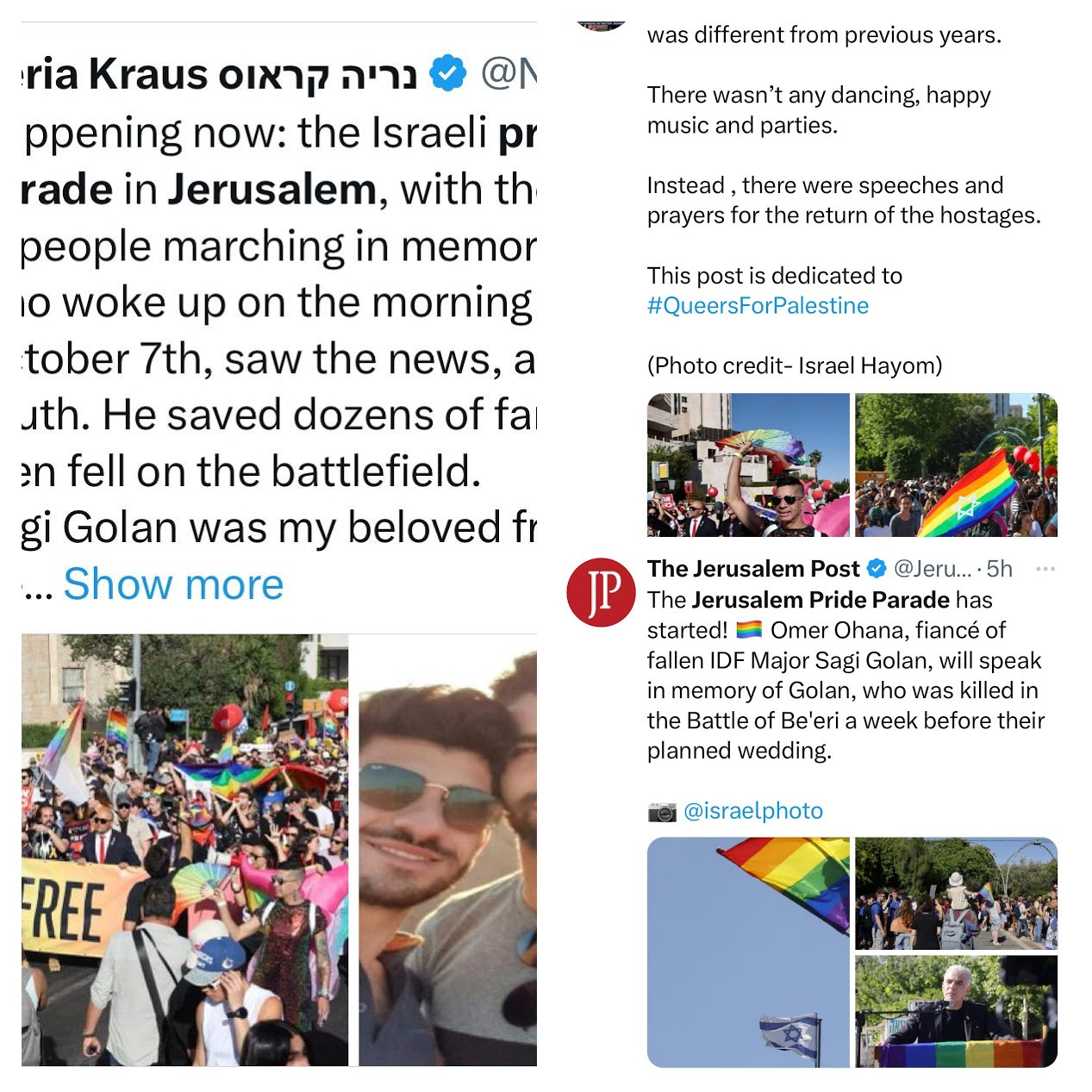Israel at War - Day 238
1. Tens of Casualties among displaced Palestinians in Rafah, southern Gaza Strip
The Israeli army has intensified its attack on Rafah, the southern Palestinian town in the Gaza Strip, amid orders issued by The International Court of Justice in the Hague (ICJ). Tens of Palestinians, including many children and women were killed as a result of an air strike, by the Israeli Air Force (IAF). An Israeli army spokesperson claimed that the targets were Hamas militants and a fragment of one of the bombs caused a fire that engulfed the area. The IDF investigated the event and concluded that the scale of the event happened because Hamas hid ammunition in the refugee camp. Criticism around the world intensifies, especially after the ICJ issued an order to halt the attack on Rafah. The US administration is also calling on Israel to ease the pressure in the area which is a refuge for more than a million Palestinians who fled their homes in the north, but say that the situation doesn’t cross their red line. Criticism has also come internally from Israeli analysts and commentators. Senior officials in Israel, politicians in office and ex-army generals claim that the war in Gaza will continue for months, and that it will not necessarily contribute to a better hostage exchange deal. Hamas insists on an end to the war and the evacuation from the Gaza Strip of all Israeli forces as a precondition for releasing the hostages. PM Netanyahu continues to announce that he is aiming for a complete and total victory and that he will not compromise. Others in his cabinet claim that this is not a feasible option.
Meanwhile, the IDF announced that it has gained full control over the border strip between Gaza and Egypt, the Philadephi Corridor/Route. Control over this corridor enables Israel to control everything that comes in or out of Gaza. The IDF has also announced that it has demolished more operative tunnels in Rafah.
In Israel the demonstrations and protests by the families of the hostages held in Gaza continue. Earlier this week there was a mass funeral of a hostage, Hannan Yablobka, whose body was rescued in a military operation.
This week an article in The Guardian revealed that former Mossad chief, Yossi Cohen, while still in office, allegedly stalked and threatened a former International Criminal Court (ICC) prosecutor to pressure her not to issue arrest warrants for Israeli officials in connection with misconduct or war crimes.
2. An Investigative Report Alleged Misconduct by Transportation Minister, Miri Regev
The Minister of transportation, a Likud senior member, and once the closest of PM Netanyahu’s allies, was accused in a television investigation program of alleged corruption and breach of trust. According to the televised story, Regev blatantly preferred to help and support only those mayors who helped her in the primaries of the party, that she ignored other mayors and their urgent issues regarding improving roads and infrastructure, and that the vast majority of her time in office is dedicated to political meetings, and self promotion rather than working to improve transportation for the benefit of all Israeli citizens. If that is true, it indicates the level of alleged corruption in the civil service and public sector, in the last few years, especially during PM Netanyahu’s rule. Regev was also allegedly using the October 7th events to promote herself and take revenge on Kibbutz Be’eri for not inviting her in. Be’eri was one of the Kibbutzim that had the highest number of casualties on October 7th.
In addition, Israeli police opened an investigation regarding another alleged case of corruption: The police detained for investigation the former head of the Israeli bar association, and a former head of the Tel Aviv District court as suspected participants in a corrupt deal. They are accused of plotting for the representatives of the bar association in the committee to nominate justices of their choice, then the minister of justice would vote for their nominee to be the chief justice in the district of Tel Aviv, and in exchange he would make sure that the head of the bar will have more amenable judges when he works as a lawyer in court. The chief judge is the one who decides on the distribution of cases among available judges. The story was exposed in the Haaretz newspaper which published transcripts and recordings of conversations between the two, allegedly plotting the deal.
3. Yair Golan Wins Labor Primary for Party Chair
Golan marked an impressive win and received 95% of the votes of party members. Golan returned to the political arena after winning public recognition and appreciation for heroically rescuing several participants of the Nova rave near the Gaza border on October 7th.
Golan, former IDF deputy chief of staff, ran in the Meretz primary for Chair in the 2022 elections and lost. Meretz did not pass the electoral threshold and remained outside the Knesset. Now Golan has promised to unite the parliamentary left and strengthen Israeli democracy. In a statement, following his landslide victory he stated: “We have to unite everyone – Labor, Meretz, the protest organizations, those disappointed by other parties,”
Recent polls predict a unified Labor-Meretz party, under Golan’s leadership, will receive ten mandates increasing its representation from the current four MK Knesset seats the Labor party now holds. The Knesset has a total of 120 members. A bloc of ten seats can have a disproportionate share of power and impact on any coalition it is a member of due to the nature of Israeli coalition governments.
Another poll shows a decline in the power of Gantz’ party, National Unity, with 25 seats, and an increase in power from previous polls for Likud, with 21 seats. The poll also indicates a drop in public support for Gantz as future prime minister, seen by 30% of respondents as most fit whereas 36% of potential voters deem Netanyahu as most fit to be prime minister.
4. Clashes Between Haredi Worshipers and Police at Mt. Meron
Violent clashes erupted between police and border police officers, and Ultra-Orthodox worshippers who attempted to forcibly enter the Mount Meron area for the traditional annual Lag Ba’Omer celebration. Lag Ba’Omer is a minor Jewish holiday whose origins are uncertain. Mount Meron, the presumed burial site of Rabbi Shimon Bar Yochai, where the ultra/-orthodox gather annually for a pilgrimage, was declared a closed military zone, due to Hezbollah missile barrages.
Religious and far-right politicians, and pundits were quick to condemn the brutal treatment of worshippers by the police, citing images of slapping, shoving, and kicking of men and women. A police spokesperson issued a statement saying that nineteen policemen required medical care following the clashes with worshippers, and that those suspected of using excessive force will be removed from duty until further investigation.
Following the violent clashes, homeland security minister Ben Gvir announced that he will summon police chief Shabtai for a hearing before his dismissal. In an unusual move, the police chief asked attorney general Baharav-Miara to intervene. The AG told minister Ben Gvir that his attempts to fire the police chief are “unlawful” and raised the suspicion that he is acting in an attempt to intimidate the police force.
The relationship between minister Ben Gvir, and police chief Shabtai became increasingly tense during the past weeks, as Shabtai, who is due to end his term in six weeks, accused the minister of politicizing the police.
5. A Somber Jerusalem Pride Parade Takes Place Amidst War and Hostage Crisis
More than 10,000 people marched in the streets of Jerusalem on Thursday under heavy security, marking the city’s 22nd pride parade. The March, led by the Jerusalen Open House for the LGBTQI+ community and families of hostages, was held under the slogan “Born to be Free”. Throughout the march, participants chanted “bring them home now!” and other slogans for the immediate release of the hostages.
Leading the march, alongside the hostage family members and their supporters, was the French ambassador to Israel and his partner. The march was broadcast live to many locations around the world.
Homeland security minister Ben Gvir arrived at the march’s starting point near the Liberty Bell Garden and was received with calls of “shame!” and “you have deserted the hostages” calls from the marchers. A small group of far-right activists protested what they called “the abomination march”.
Unlike the Tel Aviv pride parade, cancelled this year because of the war, the Jerusalem pride parade is not funded or promoted by the city. Yet, pride flags and huge banners promoting the event were spread around the city, featuring the image of fallen soldier Sagi Golan, who became a symbol of the LGBTQ community when he was killed on Oct. 7 days before his wedding. His fiancée, who was denied recognition by the IDF as a bereaved family member, was one of the speakers at the rally held at Independence Park after the march.
Other speakers at the event included opposition leader Ya’ir Lapid (Yesh Atid), the chair of Israel’s LGBTQI+ association, executive director of the Jerusalem Open House, the first transgender council member and representatives of the hostages’ families. In this address, Lapid said that Israel was not only fighting a war for its existence, but also for its character as a free and democratic society. In a hopeful tone, Lapid said: “love will win, hope will win, and pride will win.” He later reiterated the importance of civic engagement in the struggle for equality: “no group has ever attained their rights without a struggle, not women, not black people, not Jews and not LGBT people.”
Israel at War by the numbers:
237 days of war since October 7, 2023
According to the IDF more than 15,000 Hamas fighters have been killed in Gaza.
According to Hamas more than 35,000 Gazan residents have been killed in Gaza. As of April 30 the fully identified death toll is comprised of 7,797 children, 4,959 women, 1,924 elderly, and 10,006 men,There is no breakdown by civilians or Hamas members. Substantial numbers remain unidentified.
Israeli casualty statistics:
Six Israeli soldiers were killed in the last few days, bringing the total number of Israeli soldiers killed since October 7 to 639, with 291 Israeli soldiers killed since October 7 in ground operations in Gaza. Two Israeli soldiers were recently killed in a car ramming attack in the West Bank.
As yet the war has not achieved its stated objectives: the destruction of Hamas and the release of the 121 remaining hostages, of whom approximately 84 are still thought to be alive.
Approximately 135,000 Israeli refugees are internally displaced from the north and the south with no target dates for their return home.
According to the UN 1.7 million Gazans have been displaced from their homes.
To date Israel has not announced any plans for the ‘day after’, how Gaza will be administered, or by whom.
To our readers: Please note that we embed links to further details/articles behind the summaries for each item. You can see the links by their blue color and, if you are interested in further details, you can click on the link to access the relevant article/s.










